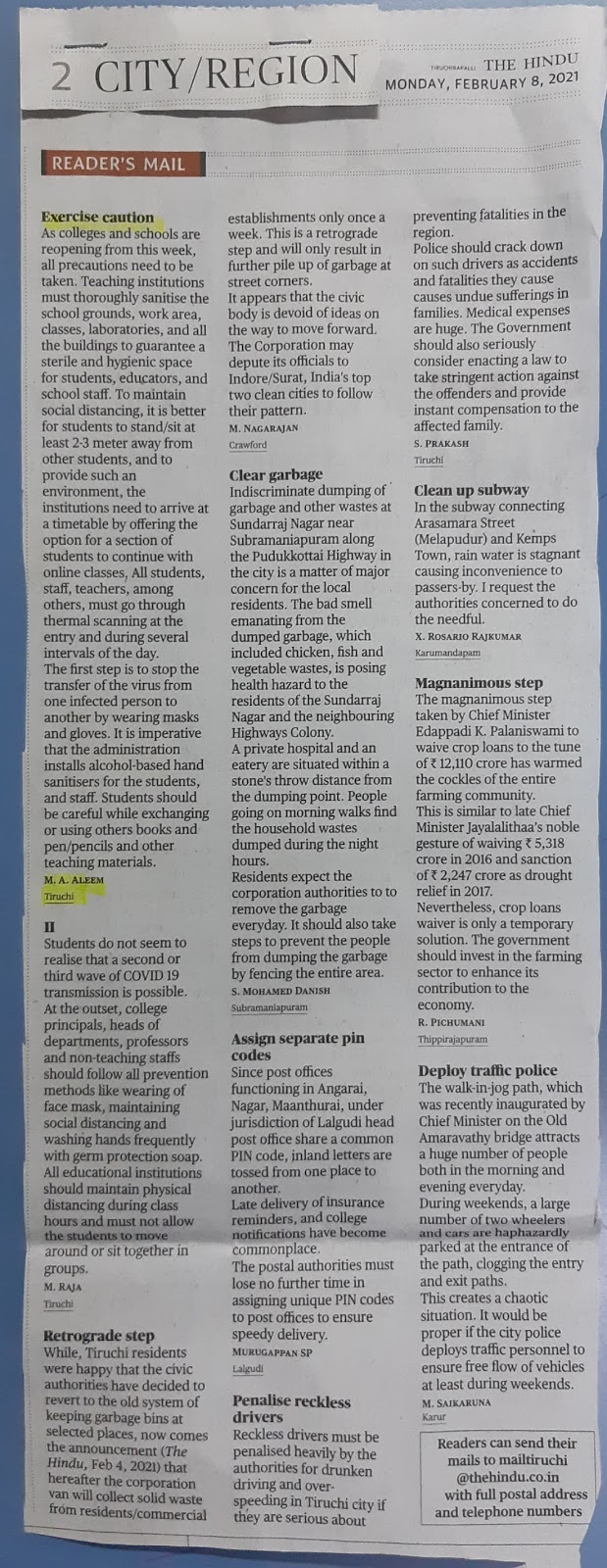Challenges with newer COVID-19 variant
Currently due to higher rate of COVID-19 cases , appearances of newer genetically diverse variants are now more in recent months with newer symptoms with sore throat, myalgia,tiredness, with minimal loss of taste and smell.
Each new infection gives the virus a chance to mutate as it makes copies of itself, threatening to undo the progress made so far to control the pandemic.
Mutations are rapidly popping up, and the longer it takes to vaccinate people, the more likely it is that a variant that can elude current tests, treatments and vaccines could emerge.
First newer variant is identified in the United Kingdom and which may become dominant in the U.S. by March this year.
Newer COVID-19 variant doesn’t cause more severe illness, it will lead to more hospitalizations and deaths just because it spreads much more easily.
The best way to prevent mutant strains from emerging is to slow its transmission.
So far, vaccines seem to remain effective, but there are signs that some of the new mutations may undermine tests for the virus and reduce the effectiveness of antibody drugs as treatments.
Younger people may be less willing to wear masks, shun crowds and take other steps to avoid infection because the current strain doesn’t seem to make them very sick.
The three variants of concern emerge since September suggests that there are likely more to come.
One was first identified in the United Kingdom and quickly became dominant in parts of England. It has now been reported in at least 30 countries, including the United States
Soon afterward, South Africa and Brazil reported new variants, and the main mutation in the version identified in Britain turned up on a different version.
The important finding here is that this is unlikely to be travel-related and instead may reflect the virus acquiring similar mutations independently as more infections occur.
Some lab tests suggest the variants identified in South Africa and Brazil may be less susceptible to antibody drugs or convalescent plasma.
Current vaccines induce broad enough immune responses that they should remain effective.
If the virus changes enough, people might get COVID-19 a second time. Reinfection currently is rare, but Brazil already confirmed a case in someone with a new variant who had been sickened with a previous version several months earlier.
People should wear mask to prevent COVID-19 and its variant spread.
Still people need to limit congregating with people outside their household to prevent viral spread .
Still need people to be washing their hands and really being vigilant about those public health practices, especially as these variants emerge.
Some variants may pose unexpected challenges to the immune system, even in those who have been vaccinated.
People who had survived mild infections with the coronavirus may still be vulnerable to infection with a new variant and more worryingly, the vaccines may be less effective against the variants.
Existing vaccines will still prevent serious illness, and people should continue getting them.
But the vaccines may not prevent people from becoming mildly or asymptomatically infected with the variants.People may not even know that they were infected.
If the infected can still transmit the virus to others who are not immunized, it will continue to claim lives.
The vaccines work by stimulating the body to produce antibodies against the coronavirus. Over time, the virus may gain mutations that allow it to evade these antibodies called as escape mutations.

















































